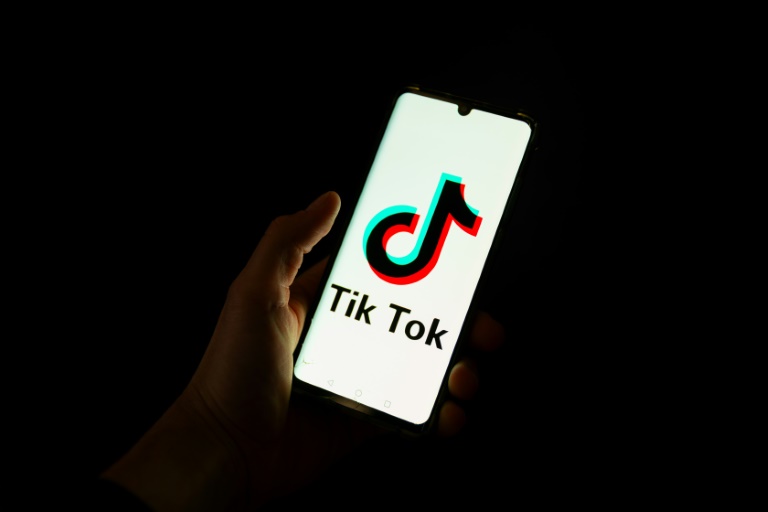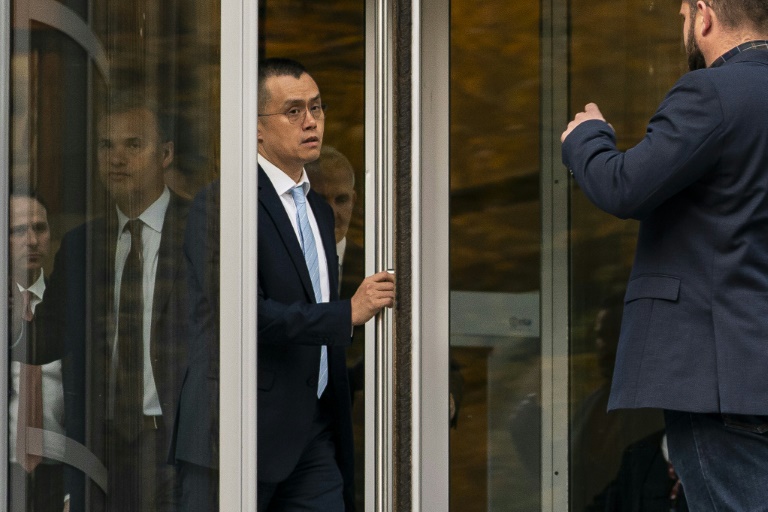Among the rows of vibrators, rubber torsos and leather harnesses at a Chinese sex toys exhibition in Shanghai this weekend, the beginnings of an AI-driven shift in the industry quietly pulsed.
China manufactures around 70 percent of the world’s sex toys, most of it the “hardware” on display at the fair — whether that be technicolour tentacled dildos or hyper-realistic personalised silicone dolls.
But smart toys have been rising in popularity for some time. Many major European and American brands already offer tech-enhanced products that can enable long-distance love, monitor well-being and even bring people one step closer to an ultimate sci-fi fantasy — sex with robots.
Integrating artificial intelligence has become more popular in the last two years, according to Hannes Hultman, Europe sales manager for Chinese sex toy firm Svakom.
“But it’s still very early-stage for a lot of this,” he told AFP on Friday.
Svakom, one of the better-known Chinese brands overseas, is among those venturing further into the field of teledildonics, using networked toys to create virtual sexual encounters.
One of its masturbators can sync with video to replicate the actions on screen — either with preprogrammed content via Svakom’s app, or with an AI plug-in that watches a video on approved sites in real-time and mimics it.
The company has also partnered with firms that offer AI chatbot “fantasy partners”.
“You can ask the AI to control your toy,” said Hultman. “You create your own girlfriend and actually interact. And now you can basically touch your body through the toy.”
Sistalk Technology, a Beijing-based company that made phone software before pivoting to the adult industry, also has a feature on its app that allows an AI “girlfriend” to control a toy.
A salesperson told AFP that demand from China’s younger generation, with more disposable income and higher standards, was changing the market.
“Although we make sex toys, we’re trying to change the mindset of our community and make (the focus) less pornographic,” he said.
Sistalk’s app can function as a social media platform, with users socialising and sharing their hobbies and likes.
They can also choose to virtually hook up and control each other’s sex toys.
“It’s definitely a new trend, in Europe it’s quite developing — many customers ask for it,” said Malgorzata Zasada, of company Oninder, named to sound like dating app Tinder and imitates the way users swipe to find matches.
“In Asia, in China, it’s not so popular right now. But it’s changing and I think it will be a new hit.”
Realistic sex robots, meanwhile, seemed a long way off — the few on display moved jerkily, with limited and badly synced speech.
– Enlarging the market –
Experts have flagged the many unanswered ethical questions around the growing use of AI for intimacy.
At the moment, in China, the pool of people engaging is still small — Sistalk’s domestic app only has around 500 users, minuscule in terms of China’s population.
The Asia-Pacific region is seen as a key growth market for sex toys though.
At the stall of a company named Wet Stuff, representative Ye Pei showed AFP the Australian company’s Chinese-targeted lubricant flavoured with baijiu, a popular local alcohol.
Attitudes towards sex have changed drastically in recent years, mused the 40-year-old.
“When I was 20, when I went to buy condoms at the drugstore I would immediately stick them in my pocket and run off. But now… the saleswoman might tell me that these condoms are ultra-thin, these ones make you last longer, these ones have raised dots,” he laughed.
Another change has been the rise in “women’s power”, said a representative from BeU, a brand that focuses exclusively on toys for women.
“Everyone has become more and more able to accept (adult products), rather than feeling ashamed about it,” she said.
Toys now use tech to incorporate aspects of well-being as well as pleasure.
One vibrator on display at the expo was advertised as being able to predict ovulation by measuring internal temperature, as well as help train pelvic floor muscles.
Others are said to recognise when their user is climaxing and remember the pulse patterns that led them there.
The sleek silicone products drew a stark contrast with more traditional stalls, many of which featured walls of life-like, often enormous, plastic genitals that involved no tech at all.
“I think there’s a lot of things changing in the industry,” said Svakom’s Hultman.
“The technology aspect, the AI… it’s growing so fast, it will be very interesting to see where all this goes. But we have big plans.”

 Business4 months ago
Business4 months ago
 Business5 months ago
Business5 months ago
 Events4 months ago
Events4 months ago
 People4 months ago
People4 months ago
 Events5 months ago
Events5 months ago
















